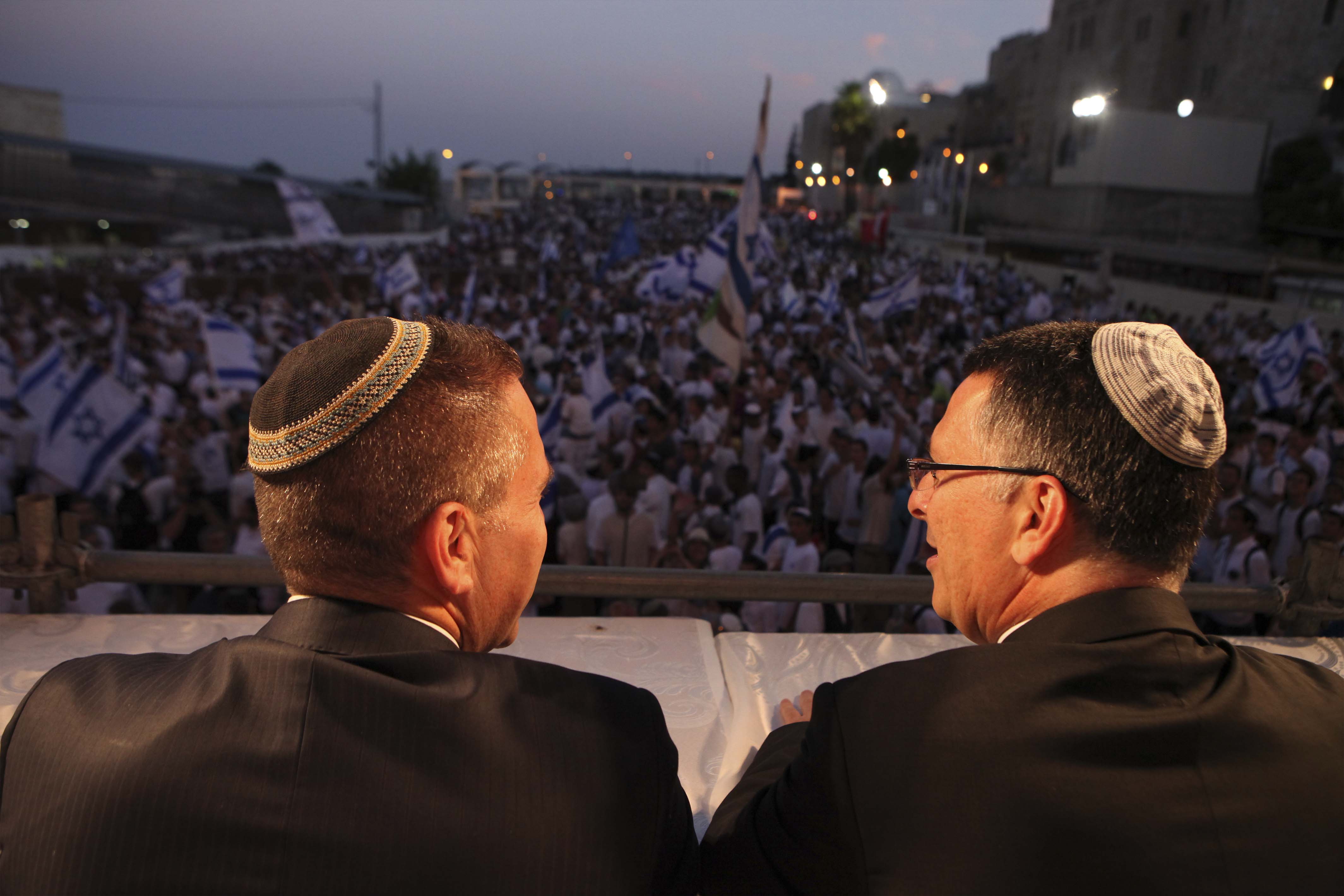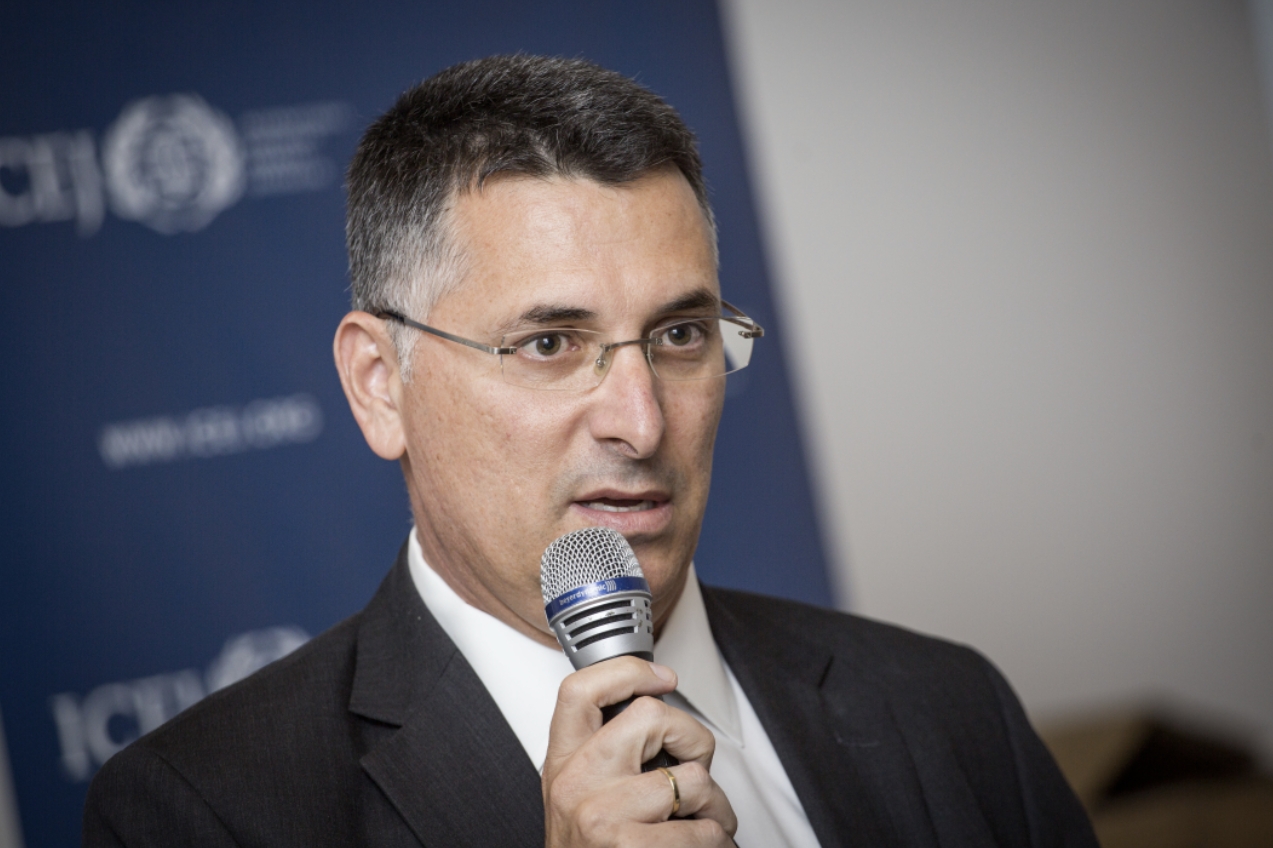Gideon Sa'ar in an Exclusive Interview: "It's Not That There's an Excess of Jewish Content; There's a Great Shortage"
A Shabbat observer, defines himself as traditional, and sees himself as a future prime minister – Gideon Sa'ar opens up in an exclusive interview with the Hidabroot website, sharing about his connection to Judaism.
 Gideon Sa'ar (Photo: Flash 90)
Gideon Sa'ar (Photo: Flash 90)Although he took a break from political life, former minister Gideon Sa'ar is very busy today. His daily schedule, he shares, is full and exhausting. Ten months ago, Sa'ar announced his return to political life, and since then he has been balancing between intense fieldwork, his role as a lecturer at Ono Academic College, and his activities as the chairman of the advisory committee at the Metiv Center.
"As I explained at the time, my reasons were personal and familial," he says in response to the first, obvious question: What led a senior government minister, someone whose career was skyrocketing, to decide to retire from political life and leave everything behind?
"I started a new family, and after 20 years of intense public activity at the decision-making center, I thought it was time to fulfill my commitments to my family and live a normal life for a period, in terms of both partnership and family life. To engage in different types of challenges, but in a more relaxed manner. All in all, it was a wonderful period, and I'm glad I found the strength of spirit to decide to retire at the time because it wasn't easy."
What did you learn about yourself during this period?
"A lot. First of all, you feel the full strength of the family circle, something very difficult in intense political life. You experience your children's development more fully as a father. During this time, I married off my eldest daughter, and became a grandfather. My time was dedicated to my family. Secondly, you realize that choosing public service is a mission that can also be without it, and the fact that after so many years being surrounded by assistants, spokesmen, bodyguards, drivers, and secretaries, you manage to run your life independently, like any person, is a great joy. Additionally, you can view public issues from a more genuine and accurate perspective."
Sa'ar, a lawyer by profession, decided on a break from political life in September 2014, shortly after his son, David, was born. The first son from his second marriage to journalist and broadcaster Geula Even-Sa'ar. Until then, his political career had been on the rise. He served as the government secretary in Netanyahu's first government and Sharon's first government. Later, he was elected to the Knesset on behalf of Likud. In 2009, he was appointed Minister of Education in Netanyahu's government, and in 2013 he was appointed Minister of the Interior. His decision to retire from politics raised quite a few eyebrows at the time, although he consistently expressed a desire to be a more involved father to his young children in every given interview.
To be a father to small children again at your age is not really taken for granted.
"It's certainly not a self-evident decision. I have two daughters from a previous marriage, my wife Geula has three children. We could have had a relationship focused solely on partnership, enjoying life and a great deal of freedom, but I'm glad we chose the genuine and full path of starting a new family. There are great advantages to parenthood at an older age. You are more experienced, less stressed, and to some extent, you know better how to appreciate this gift, especially because it's not taken for granted. In a first marriage, it's clear that children are part of the deal. But when you are young, you are more focused on your initial professional steps, more preoccupied with paving your own way. In contrast, at an older age, after you've established your status and choose to have children again, you can fully experience this adventure. And it's worth every moment."
This is all well and good, but some may say that the decision to retire at the height of political success didn't necessarily work in your favor.Do you have any regrets about this move?
On this question, Sa'ar is very resolute. "No regrets," he says firmly. "Not even for a moment over more than three years. Throughout this entire period, I was always glad that I found the strength of spirit to retire, because, naturally, a person works hard to reach a certain status and is very afraid to risk it, because after all, the future is always a mystery. But sometimes in life, it's important to follow your heart and not fear. In my vision of public life, I remind myself all the time that I am not there for myself but for Israel as a whole. If the people want me to return, I will return. I have made a commendable journey, and it was a joy when I saw during this entire time that the public still wants my return to political life. Over the last three years, not just in recent months since I announced my decision to return, I encountered many positive reactions. I think the public wants and demands a different kind of politics than what exists today, a cleaner one."
The new family he established wasn't the only change in Sa'ar's life in recent years. Another significant change is his decision to observe Shabbat in its entirety, a decision he pledged at the brit ceremony of his son, David.
"I made the decision to observe Shabbat as a vow I took at my son's brit," he shares. "But in fact, I had been considering this step for a long time before. I think in our lives today, particularly for people who live public lives, there is a very intense and relentless cycle, and this pause and rest of Shabbat are perhaps more needed than ever. My Shabbat differs from that of a religious person because I don't go to synagogue, but I observe Shabbat in every respect. The phone is off, no traveling anywhere, it's pure family time. Even friends know I'm always home on Shabbat. And it's a choice I am very happy with. Of course, there's an element related to Jewish identity. Although I am not religious and don't observe all 613 mitzvot, Jewish identity is important to me. It's important for me to pass certain things on to my children. My choices about Shabbat have significance, both in terms of family life and in terms of what I impart to my children."
How else is your connection to Judaism expressed?
"I come from a secular home, but I define myself as traditional, and I take upon myself certain commitments that I believe I can fulfill, which will allow both me and my children to be exposed to something of our heritage. I don't look at it as something outdated and archaic from the past, but as a living component that also has a role in our future, and also in ensuring that we continue to live as Jews for generations to come."
 (Photo: Flash 90)
(Photo: Flash 90)There are many claims of religious indoctrination, especially in the education system, that rise in the general media. As a former Minister of Education, what is your opinion on these claims?
"I think there's a small public that is apprehensive about anything related to religion, but it's impossible to disconnect it from the education system, because in Judaism, religion is also nationality and identity. Our children need to know and have a part both intellectually and in terms of knowing our tradition, to have a foundation. And unfortunately, in real terms - it's not that there's an excess of Jewish content, but that there's a great shortage of it. As a result, there's a lack of knowledge in our future generation reflected in great ignorance regarding our sources. As Minister of Education, I did a lot to change this. I led a new subject called Israel's Heritage and Culture, taught at the upper divisions of elementary school and in junior high, and in other contexts, I worked to strengthen heritage. From reviving the adult Bible Quiz, to student visits to Hebron, to many projects related to public and Zionist identity."
In light of the controversy that erupted following the Sabbath Law, do you believe the issue of Shabbat should be regulated by law, or should we maintain the status quo as it is today?
"The status quo is dynamic, there's no true status quo. I grew up in Tel Aviv as a child, and today's Tel Aviv street is different from the street I grew up on. Effort should be made to maintain both things together. One is the ability of every person to enjoy the weekend, including Shabbat, according to their lifestyle and will, and the second is to maintain or ensure that there is a weekly day of rest. Keeping a day of rest is not just a religious matter. In fact, the Hours of Work and Rest Law was enacted in the early fifties during the Mapai period. A day of rest is a great thing that the Jewish people have given to humanity, and it's one of the things that separates an advanced society from a society of slaves working nonstop. But I think we should do our utmost to conduct a dialogue and try to reach a broad national consensus on how to implement these principles. I wouldn't want Shabbat to be at the heart of constant conflict among our people. Rather, an effort should be made to reach a broad consensus around Shabbat."
Ten months ago, as mentioned, Sa'ar announced his return to political life. He doesn't hesitate when asked about the goal he set for himself. "My goal is to return and serve the public. When there are elections in Israel, I intend to run on the Likud list".
Do you see yourself as a future Prime Minister?
"Absolutely, yes. It will depend on the will of the public. When I returned, I said my goal is to lead the country in the future, but I added in the same breath that I'm not in a hurry. I have patience. Currently, there's a serving Prime Minister from my movement. The national path is important to me and comes first over the personal. And with that, I believe that those who are not in a hurry succeed."
On the security issue, do you support a diplomatic arrangement with the Palestinians?
"The question isn't whether I support it or not, the question is whether an arrangement between us and the Palestinians is realistic in the foreseeable future. To the best of my judgment, there's no chance of reaching an arrangement with the Palestinians that will end the conflict in the foreseeable future. On the Palestinian side, there's no willingness to accept the existence of the State of Israel, antisemitic incitement begins there at a young age in kindergarten, and the results of this incitement can be seen again in the attempted lynching in Jenin. It's deeply rooted, and as long as there's no change, there's no chance of ending the conflict.
"In addition, the Palestinian Authority continues to pay generous stipends to terrorists and their families. The Palestinian leadership under Abu Mazen is corrupt, no elections have been held there for about 13 years, and it has no public legitimacy to make compromises and agreements with Israel. Under these conditions, talk of a peace settlement with the Palestinians is empty words."
 (Photo: Flash 90)
(Photo: Flash 90)If so, do you support the continuation of the occupation?
"A nation cannot be an occupier in its own land. Judea and Samaria are the heart of the Jewish people's historic homeland, period. As for the Palestinians, the area predominantly populated by Palestinians is under the control of the Palestinian Authority, and we have no claim over it. Our only interest, for which our forces occasionally enter this area, is the security interest of protecting Israeli citizens from terrorism. We need to step up our explanatory efforts worldwide, based on facts, and those open-minded can be convinced in any case. Our conduct should be guided by our interests, not the propaganda against us."
And what about the continuation of the siege on the Gaza Strip?
"In Gaza, a terrorist organization recognized as such in the U.S. and Europe is in control, equipped with thousands of missiles and digging tunnels to harm Israeli citizens, despite our withdrawal from Gaza in 2005 when there was no Israeli civilian or military presence in the Strip. Under these conditions, the siege is recognized by international law and is a necessity. Products and the like are allowed in, and that should continue. The siege can end immediately if the other side stops its murderous intentions toward Israel and its citizens."
Do you agree with the current government's actions on the northern border?
"Iran is trying to create another front against Israel in Syria, just as it did in Lebanon through Hezbollah. Israel needs to set clear red lines concerning Iranian attempts to establish missile production facilities on Syrian and Lebanese soil, as well as preventing the introduction of strategic weapons and advanced air defense systems into Syrian territory. Iran is a stubborn and sophisticated enemy, and we must be determined in standing by the red lines I've mentioned, even with a willingness to use military force if necessary."

